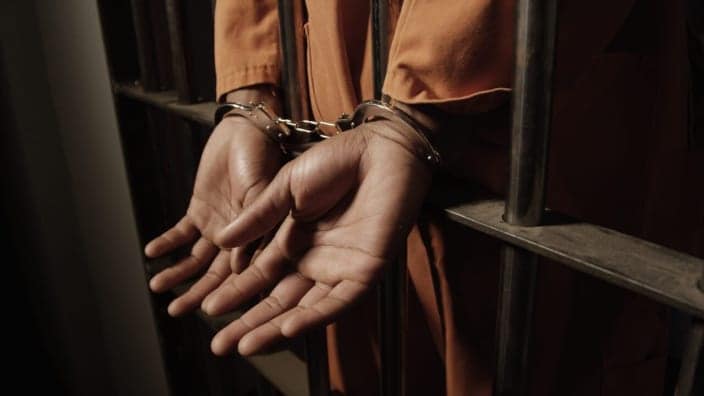We bring news that matters to your inbox, to help you stay informed and entertained.
Please fill out this field.
Terms of Use and Privacy Policy Agreement
Please fill out this field.
WELCOME TO THE FAMILY! Please check your email for confirmation from us.
The three-member Alabama Parole Board approved parole for 409 prisoners while rejecting 3,593 others for the fiscal year that ended on Sept. 30.
Ninety percent of prisoners in Alabama have been denied parole by the Alabama Parole Board, inmates like 71-year-old Leola Harris, who uses a wheelchair and has dialysis three times a week due to end-stage renal disease.
According to The Associated Press, former Alabama Chief Justice Sue Bell Cobb, who oversees Redemption Earned, the organization whose attorneys represented Harris at a hearing last week, referred to the denial as an injustice and a waste of taxpayer dollars. The nonprofit defends elderly and ailing prisoners who it determines deserve release.
Black inmates, including Harris, make up about half of Alabama’s prison population in a system in which they are disproportionately overrepresented, The New Yorker reported last fall.
“They are supposed to ask if someone has been adequately punished,” Cobb said, according to AP. “She’s 71 and has served 19 years, without violations in 12 years. Then the next question is: Do they pose a risk to public safety? The woman is in a wheelchair and cannot even go to the bathroom by herself. She’s dying and they just denied her parole. It is an injustice. It is shameful.”
Harris was convicted of the murder of Lennell Norris, a man found dead at her dinner table in 2001. She insisted during testimony that she did not shoot him, and someone else was present the night of Norris’ murder.
Harris won’t qualify for parole again until 2028. Her lawyer argued that after serving 19 years of a 35-year murder sentence, she is no longer a threat to anyone and should be discharged to a nursing home to live out her final years.
Victims of Crime and Leniency and the state attorney general’s office opposed Harris’ release.
“If these folks are upset about the number of inmates paroled, they should come everyday and listen to the horrible crimes they committed,” stated VOCAL’s executive director, Janette Grantham, via email, according to AP. “They would understand why these violent offenders should serve their sentence.”
Data from the Alabama Bureau of Pardons and Paroles shows that the three-member Alabama Parole Board approved parole for 409 prisoners while rejecting 3,593 others for the fiscal year that ended Sept. 30.
Following four years of decline, the grant rate is now 10 percent — significantly lower than in prior years. The rate was 31 percent in the 2019 fiscal year before dropping to 20 percent the following year, then, in 2021, to 15 percent.
Guidelines, including a scoring system, were established in 2020 to decide if the board should release prisoners. According to state records, the rules are honored roughly 30 percent of the time.
Cam Ward, executive director of the Alabama Bureau of Pardons and Paroles, pointed out that despite the guidelines, the law states that the parole board has complete authority. Due to sentencing changes, he advised against comparing 2019’s parole rates to those from earlier years.
Denial has allegedly become the board’s default decision, according to those who oppose the decline in the state’s parole rate.
Alabama is setting “conditions for combustion” in prisons the U.S. Department of Justice has claimed are already among the most dangerous in the nation, according to Leah Nelson, research director at the nonprofit Alabama Appleseed Center for Law and Justice.
“We have a parole board that evidently is finding that no one meets whatever standard it has in mind,” Nelson said, AP reported. “No one has any hope. We have a despair machine.”
TheGrio is FREE on your TV via Apple TV, Amazon Fire, Roku and Android TV. Also, please download theGrio mobile apps today!

